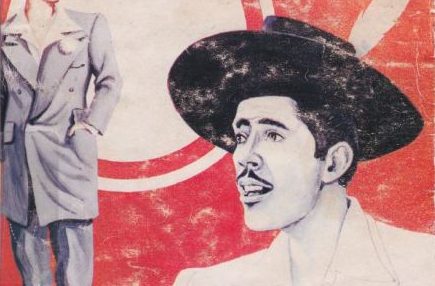Intense controversy has followed the docile cannabis plant for over a hundred years, with almost little to no justifiable cause behind the unfair antagonism. Despite the severe lack of evidence, government legislation has grown increasingly tough on the possession of marijuana. The Lone Star State, known for its rigidity in upholding the law, is one of the worst places to get caught with grass; having two ounces or less can land you in the slammer for 180 days and a fine of up to $2000, even if it’s your first time.
The El Paso Chapter of the National Organization for the Reform of Marijuana Laws (NORML) has been working to bring reform to Texas. Josh Dagda, Communications Director for El Paso NORML, keeps an open avenue of communication between marijuana reform lobbyists and El Paso’s elected officials like Representative Marisa Marquez, Senator Jose Rodriguez and Congressman Beto O’Rourke.
“Our politicians, more than any other politicians in Texas, are most supportive of reform because they have seen firsthand the violence that drugs have brought to the Borderlands.” Dagda says. The violence in Mexico stems from a drug war fueled by cartels fighting over the prized border territory & the last government tally listed over 45,000 deaths.

 Marijuana hasn’t always been vilified—Cannabaceae has been treasured for well over ten thousand years and is one of the oldest crops used for cultivation. In ancient times, marijuana was cherished as a gift, incorporated in garments, used for incense and ingested or smoked to achieve meditative or transcendental states of being. Beyond these enjoyable uses, each culture that has harvested hemp has found other utilitarian uses for the plant such as extracting the oil from the seeds, using the hempen fibers for rope and textiles, and eating the seeds for food.
Marijuana hasn’t always been vilified—Cannabaceae has been treasured for well over ten thousand years and is one of the oldest crops used for cultivation. In ancient times, marijuana was cherished as a gift, incorporated in garments, used for incense and ingested or smoked to achieve meditative or transcendental states of being. Beyond these enjoyable uses, each culture that has harvested hemp has found other utilitarian uses for the plant such as extracting the oil from the seeds, using the hempen fibers for rope and textiles, and eating the seeds for food.
Once the colonists came to the New World from England, it was decreed by King James I that each colonist should grow 100 hemp plants for export. Hemp was used to pay taxes and in 1776 and pamphlets were distributed among the colonies that sought to establish hemp as America’s trademark product.
The rise of the Industrial Revolution would have turned cannabis into America’s most valuable cash crop, but it all came to an abrupt end with the passing of the Marihuana Tax Act of 1937, HR 6305. The act was rife with controversy, racism and underhanded dealings between the Federal Bureau of Narcotics and industrial giants DuPont and Hearst, of who would stand to lose a considerable sum of their fortunes should marijuana had been allowed to proliferate.
 Fast forward to 2014: the United States aren’t so united on cannabis legislation anymore. Marijuana is completely legal in Colorado and Washington on a state level, decriminalized in 14 states and approved for medical use in 20 states. Federal law still classifies cannabis as a Schedule I Drug, which by the DEA’s definition means that it is dangerous with a high potential for abuse and useless for medical needs. Despite this classification, Colorado and Washington have legalized marijuana completely, 16 states have decriminalized possession of marijuana and 20 states have allowed the use of medical marijuana.
Fast forward to 2014: the United States aren’t so united on cannabis legislation anymore. Marijuana is completely legal in Colorado and Washington on a state level, decriminalized in 14 states and approved for medical use in 20 states. Federal law still classifies cannabis as a Schedule I Drug, which by the DEA’s definition means that it is dangerous with a high potential for abuse and useless for medical needs. Despite this classification, Colorado and Washington have legalized marijuana completely, 16 states have decriminalized possession of marijuana and 20 states have allowed the use of medical marijuana.
With New Mexico, Colorado, California and Nevada all having made some changes in the way they treat users of marijuana, all eyes are on Texas to change its legislation. Representative Harold Dutton of Houston will bring HB 184 to the 2015 Texas legislature session, a bill that would lessen the penalties for possession of less than 2 oz. of cannabis. Another politician, Representative Elliott Naishtat from Austin will be pushing his conservative medical marijuana law in 2015. His bill, HB 594, would create a defense for patients using cannabis but would still give judges the choice to dismiss a possession charge or continue to prosecute.
“It’s not just a war on drugs, it’s a war on youth,” Dagda says, “many of these people being charged are young adults that are getting busted with a joint or maybe a few grams of pot; the current legislation is ruining their lives. These people might have applied for a scholarship or a grant to attend college to change their lives, but with a charge like possession on their record, they can’t.”
 Surprisingly enough, Governor Rick Perry agrees with this sentiment. Over the last 13 years in office, he’s frequently reiterated his opposition to marijuana legalization but has supported decriminalization. His views on the matter have opened the door for effective political conversations about reform, especially for conservatives. Though his comments seem promising, Perry will not run for re-election this year. Instead, Texas will look to gubernatorial candidates Senator Wendy Davis or Attorney General Greg Abbott in 2015. Senator Davis has expressed her support for decriminalizing small amounts of marijuana and medical marijuana for seriously ill patients. Atty. General Abbott will continue to support the current Texas laws on possession.
Surprisingly enough, Governor Rick Perry agrees with this sentiment. Over the last 13 years in office, he’s frequently reiterated his opposition to marijuana legalization but has supported decriminalization. His views on the matter have opened the door for effective political conversations about reform, especially for conservatives. Though his comments seem promising, Perry will not run for re-election this year. Instead, Texas will look to gubernatorial candidates Senator Wendy Davis or Attorney General Greg Abbott in 2015. Senator Davis has expressed her support for decriminalizing small amounts of marijuana and medical marijuana for seriously ill patients. Atty. General Abbott will continue to support the current Texas laws on possession.
“1.5 million people are in jail on drug charges and over half of those people (750,000+) are there for marijuana related charges,” Dagda says, “90% of those 1.5 million people are in jail for possession alone, the other 10% are dealers, drug lords and the like.”
However the story plays out for Texas in 2015, the elephant in the room is that Federal legislation has not wavered on its stance towards cannabis legislation. In 2013, 18 members of Congress signed and delivered a letter to President Obama that urged him to remove marijuana from Schedule I of the Controlled Substances Act. El Paso’s US Representative Beto O’Rourke was one of the Congressmen who signed the letter in support and also co-sponsored the ‘Ending Marijuana Prohibition Act’ bill written by Representative Jared Polis of Colorado, which would remove the DEA’s authority over states that have legalized cannabis.
 Though it’s unlikely that we will see any change in Federal legislation in the immediate future, a revolution is just around the corner: The Obama administration has issued banks guidance on providing financial services for legal marijuana businesses in Colorado and Washington. Deputy Director of the White House Office of National Drug Control Policy Michael Botticelli admitted that marijuana is much safer than alcohol.
Though it’s unlikely that we will see any change in Federal legislation in the immediate future, a revolution is just around the corner: The Obama administration has issued banks guidance on providing financial services for legal marijuana businesses in Colorado and Washington. Deputy Director of the White House Office of National Drug Control Policy Michael Botticelli admitted that marijuana is much safer than alcohol.
If you support the reform of cannabis laws, you can become a part of Texas legislature history with El Paso NORML by attending their meetings and becoming a member. The chapter is involved with the community in a multitude of ways by lobbying to politicians, establishing community gardens, highway cleanups and educating the public about the benefits of cannabis.
El Paso NORML Facebook: https://www.facebook.com/epnorml
Texas NORML: http://texasnorml.org/
Texas Cannabis Report: http://txcann.com/
PHOTOS BY: LUKE WIDAS




